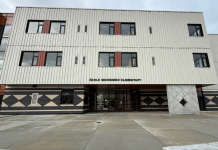The Province is reaffirming its commitment to climate action and affordability as it releases its annual Climate Change Accountability Report.
The report is based on 2022 emissions data and highlights actions completed between April 1, 2023, and March 31, 2024, as well as actions underway or planned for the year ahead. It provides the most up-to-date assessment of British Columbia’s efforts to cut greenhouse gas emissions and build a low-carbon economy.
The 2024 Climate Change Accountability Report concludes that B.C. is making progress in reducing emissions. Since 2007, the base year for B.C.’s climate goals, emissions have remained relatively stable and are projected to decline by 20% by 2030. Emissions per person are down by more than 21% and emissions per unit of GDP are down by more than 30%. This means fewer emissions are being produced for every person and for every dollar of economic growth.
While B.C. is making progress, the reductions are not enough to meet B.C.’s 2030 target. The Province will continue to strengthen its climate action with measures that deliver clean economic growth and create affordable options for people.
“British Columbia has been a leader in demonstrating solutions that have been replicated elsewhere from methane regulations to low-carbon fuel standards,” said Adrian Dix, Minister of Energy and Climate Solutions. “While this progress has been substantial, it has not been enough to be on track to meet the targets. I want British Columbians to know that we will continue to strengthen our efforts to reduce emissions, while ensuring people have more affordable and sustainable options available to them.”
Programs under CleanBC, the government’s climate plan, have helped tens of thousands of households access clean-energy retrofits, supported industrial decarbonization and accelerated the adoption of electric vehicles. In 2023, zero-emission vehicles made up nearly one in four new vehicle sales for an increase of 25% from 2022. Heat pump installations increased by 67% over the previous year, supported by government rebates and expanded access.
To support the shift to a low-carbon future and ensure affordable, reliable energy for the growing population, government is making major investments in expanding access to made-in-B.C. renewable power sources. Ten new wind and solar projects are being accelerated to deliver clean power as soon as possible. The North Coast Transmission Line expansion between Prince George and Terrace will deliver electricity to major industry, such as liquefied natural gas, mining and critical minerals projects, port operations and more, helping power economic growth, while contributing to British Columbia’s energy security.
BC Hydro is investing $36 billion through its 10-year capital plan to expand and strengthen community and regional electrical infrastructure to ensure clean power can be delivered to new homes, businesses and industries when and where they need it. These investments create economic opportunities throughout the province, including an average of 10,000 jobs annually for skilled workers.
A review of CleanBC will be announced soon to assess progress and make recommendations to strengthen B.C.’s climate policies, improve affordability and support a strong economy.




